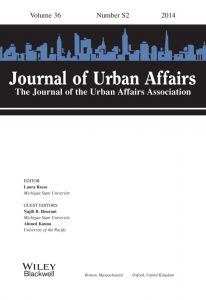Is Sleep ‘nature’s soft nurse’, or just for wimps?

Sleepy? Get used to it kid. [http://lovebabypictures.com/baby-pic-216_Baby_yawning.php]
It’s no surprise to learn that sleep is the time when we repair our bodies and our minds. Richard Wiseman, author of ‘Night School’ describes our 90-minute sleep cycle. The first stage of this cycle, light sleep, is when we cement our memories from the previous day; the second, deeper sleep stage is when we restore any physical damage, and the final dreaming stage is when we work through any worries and concerns we might have from our waking life. Completing these cycles is vital to having a ‘good’ sleep, and many sleep experts argue that it is the quality of our sleep (ie. not interrupting these cycles) which is at least as important as the quantity of it.
That said, quantity matters too of course, and other studies show that getting a minimum of six hours is vital. According to Wiseman, the risk of high blood pressure is more than three times greater among those who sleep for less than six hours a night, and women who have less than four hours of sleep are twice as likely to die from heart disease. Other studies show links between sleep deprivation and diabetes, cancer and obesity, particularly for young children who don’t sleep enough.
So if sleep is so important, why are we doing less of it? One reason must be that the world has become a far more 24-hour place, with much less respect for our circadian rhythms. Before domestic electricity became common in the UK, notably after the Electricity Supply Act of 1925, many people would have gone to bed more-or-less in line with the rising and setting of the sun – or at least, when the candles or gas lamps ran out. Today we have no such limitations and a huge number of ways to amuse ourselves at night-time. As well as being able to take advantage of 24-hour pub licencing and 24-hour supermarkets (if grocery shopping at 1am is your thing), even at home, 24-hour television and the internet mean we can delay bedtime almost indefinitely.

The way we perceive sleep is also a factor, and we don’t value it as much in this 24-hour society as perhaps we used to do. Centuries ago, Shakespeare described sleep in sympathetic terms: “sore labour’s bath”, “Balm of hurt minds”, “Nature’s soft nurse”, yet Thomas Edison (who, by inventing the light-bulb probably did more than anyone in history to reduce the amount of sleep we get) famously described sleep as “a criminal waste of time, inherited from our cave days”, and more recently, Margaret Thatcher put it simply, “Sleep is for wimps.”
In our dog-eat-dog world, we seem to celebrate people who don’t sleep much, and by implication, show distain for those who do. Looking at high-fliers in politics like Thatcher, or in business, it looks like winners just don’t need sleep. Angela Ahrendts, the former chief executive of Burberry and once the highest-paid businesswoman in Britain, gets up at 4.35am. Harriet Green, CEO of Thomas Cook, has said: “I don’t sleep much, I never have. It’s over-rated.” She claims to get up at 3.30am to answer all her emails, after no more than “three to four” hours asleep (although, Professor of psychophysiology Jim Horne, simply doesn’t believe such bold claims to be physically possible without daytime naps).

Time to get up, champ.
Assuming we are not aspiring-CEOs or Prime Ministers, what can us mere mortals do to make sure we get enough sleep? Well, tangible solutions are available. One is to avoid blue-light which is emitted from computer screens, smartphones and tablets. This blue-light can stop our bodies from producing melatonin, the key hormone which helps us to nod off. Have you ever felt really shattered, only to go to bed and not be able to fall sleep? Perhaps it’s looking at your phone or tablet which is the reason. In a study by Wiseman, nearly 80% of respondents routinely used devices like phones or computers in the two hours before going to bed. Among 18- to 24-year-olds this figure increases to a worrying 91%.
A thing of beauty? Maybe not. But they might enhance your beauty sleep. [Image from http://www.doctoroz.com/]

Koreans on the subway = smartphone/sleep time. [With thanks to http://www.liamlusk.com/]






1475-6781/asset/JSS.gif?v=1&s=377bb8e0c3d0fcf201f301ded7cf610142072c3e)
